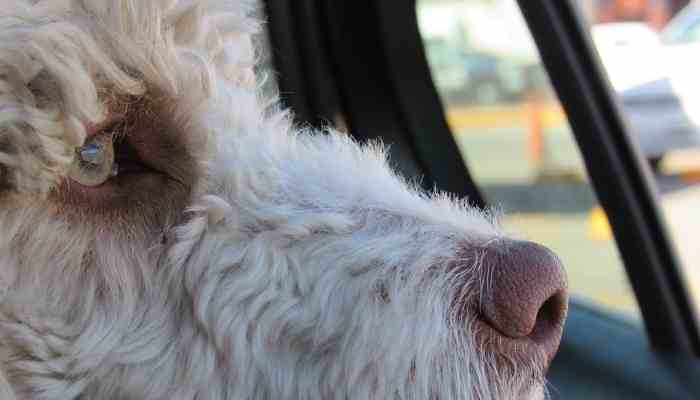In the stillness of the night, as the world slumbers under the cloak of darkness, there exists a silent struggle that often goes unnoticed by many. It’s the tale of canine hearts, beating with unwavering loyalty but quivering with fear as they face the abyss of separation anxiety under the night’s shroud. Welcome to the enigmatic world of Dog Separation Anxiety at Night, where moonlit solitude becomes a battleground for emotions, and every whimper carries a story of longing. In this nocturnal odyssey, we explore the psychology, behaviour, and the keys to granting our four-legged companions the tranquil serenity they so desperately seek when the sun goes down.
I. What is Separation Anxiety in Dogs?
Separation anxiety in dogs is a complex emotional response characterised by excessive distress and anxiety when a dog is separated from its owner or guardians. This anxiety can manifest during both daytime and nighttime separations, but nighttime separations can be especially distressing for both dogs and their owners due to the inherent darkness and silence that often exacerbates the feelings of isolation.
II. Causes of Separation Anxiety
Understanding the underlying causes of separation anxiety is crucial for developing effective strategies for managing it. Several factors contribute to this condition, and these may include:
Early Life Experiences: Puppies separated from their mothers and littermates too early may develop separation anxiety as they lack the opportunity to develop coping skills and confidence.
Past Traumatic Events: Previous experiences, such as being abandoned, abused, or neglected, can create lasting emotional scars that contribute to separation anxiety.
Overattachment: Overly attached dogs may become excessively dependent on their owners, making it challenging for them to cope with separations, especially at night.
Change in Routine: Sudden changes in a dog’s daily routine, such as the owner’s work schedule or living environment, can trigger separation anxiety.
Lack of Socialisation: Poor socialisation during a dog’s formative months can lead to anxiety when faced with new situations or separations.
III. Recognising the Signs of Separation Anxiety at Night
Recognising the signs of separation anxiety in dogs is essential for timely intervention. Some common nighttime separation anxiety symptoms include:
Excessive Vocalisation: Dogs may howl, bark, whine, or cry incessantly when left alone at night.
Destructive Behaviour: Anxiety may drive dogs to engage in destructive behaviours, such as chewing furniture, digging, or scratching doors.
House Soiling: Some dogs may urinate or defecate inside the house when left alone, even if they are house-trained.
Pacing: Restlessness, pacing, or attempts to escape confinement can be signs of anxiety.
Excessive Salivation: Anxiety can lead to excessive drooling or foaming at the mouth.
Self-Harm: In severe cases, dogs may engage in self-harming behaviours, like biting or licking themselves excessively.
IV. The Psychology of Separation Anxiety
Understanding the psychological aspects of separation anxiety is crucial for devising effective solutions:
Attachment Theory: Dogs often form strong emotional attachments to their owners, and when these attachments become overly intense, it can result in anxiety when separated.
Fear of Abandonment: Separation anxiety can stem from a fear of abandonment, where dogs believe their owner may never return.
Loss of Control: Dogs thrive on routines and predictability. Nighttime separations can disrupt their sense of control, leading to anxiety.
Sensory Deprivation: Darkness at night reduces sensory input, making dogs more vulnerable to fear and anxiety.
V. Managing Nighttime Separation Anxiety
Addressing separation anxiety at night requires a multifaceted approach:
Gradual Desensitisation: Gradually expose your dog to nighttime separation, starting with short durations and increasing over time to build their confidence.
Create a Comfortable Space: Make your dog’s sleeping area cosy and inviting, using their favourite bedding and toys to create positive associations.
Practice Independence: Encourage your dog to spend time alone during the day to help them become more comfortable with solitude.
Obedience Training: Teach your dog basic obedience commands, reinforcing their sense of security and trust in you as the leader.
Counterconditioning: Use positive reinforcement techniques to reward calm behaviour when you leave and return home, reducing anxiety triggers.
Medication: In severe cases, consult a veterinarian or a veterinary behaviourist who may recommend medications to help manage anxiety.
Seek Professional Help: Consultation with a certified dog trainer or animal behaviourist can provide tailored guidance for your dog’s specific needs.
Understanding the psychology and behaviour associated with canine separation anxiety at night is crucial for helping dogs and their owners achieve peaceful nights. By identifying the causes, recognising the signs, and implementing effective management strategies, it is possible to alleviate separation anxiety and create a more harmonious nighttime routine for both pets and their human companions. Patience, consistency, and empathy are key elements in successfully addressing this challenging issue.



